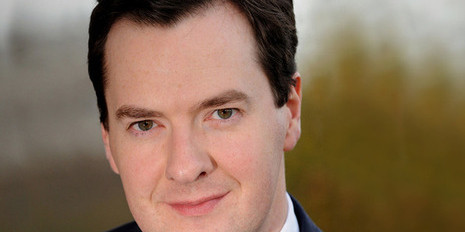Businesses reflect on yesterday’s Summer Budget
The eyes of the country were on Chancellor George Osborne yesterday, as he announced the first Conservative budget in nearly twenty years. Many have labelled the announcements as ‘vanilla’, suggesting that any positive impact of this particular budget are unlikely to be felt for some time, if ever.
It was an important day though for the Chancellor, who was under pressure to demonstrate he was in touch with ‘the people’ after he has been outlined as one of those in the running to succeed Prime Minister David Cameron as leader of the Conservative Party. This was an opportunity for Osborne to demonstrate a progressive party, an understanding party, but a bold party; ready to take steps to repairing the country’s deficit.
He claims his vision is for a ‘higher wage, lower tax, lower welfare Britain’, but there is concern that there is not enough support for growing enterprise and job creation in light of yet further cuts to welfare.
Karen Campbell, North West head of tax at business adviser Grant Thornton says:
“Today’s announcement, nineteen years on from the last full Tory Budget, was promising for larger businesses in many ways but we still have a long way to go and we need to ensure that smaller businesses do not get left behind.
“Of particular interest was Osborne’s announcement on increasing the 40% tax starting point and upping the threshold for basic rate tax. This is, of course, likely to be well-received by middle-income families and individuals.
“Decreasing tax credits and increasing the minimum wage for lower paid workers will, hopefully, incentivise businesses to improve the salaries of employees who fall within this bracket. Smaller businesses and start-ups will find this more of a challenge though and will, no doubt, miss the extra bit of support that the tax credit gave them.
“Small and medium-sized firms will now benefit from a reduction in the cost of employing people and will find it easier to re-invest profits back into their businesses. Paying the tax they owe should also become a more straightforward process. However, the reform of dividend taxation will have a negative impact on owners of privately held entrepreneurial businesses.”
Many businesses have welcomed the progression of the Northern Powerhouse and agree that powers devolved to Manchester could be a heartening indication for cities currently in talks with the Govenment, including Liverpool and Sheffield.
Carl Williams, North West managing partner at Grant Thornton UK LLP, commented:
“The Chancellor suggested that English devolution has only just begun, announcing that further powers will be devolved to Greater Manchester including children’s services, fire services and employment programmes. Transport for the North has been given a £20m budget and it will be interesting to see if it can be as effective as Transport for London has been in improving transport infrastructure.
“Further devolution deals were also trailed for Sheffield, Leeds, the Midlands and Cornwall, and of course, Liverpool. We welcome empowerment to city regions and it pleasing to see that a non-metropolitan region is included in the Chancellor’s list. County devolution is important both to help economies grow and make a statement that our rural communities are just as important to the future of this country as city regions.
“The chancellor was careful to focus on the link between metro mayors and devolution and devolving the power to reach a decision on Sunday trading was a nicely placed hospital pass.”
The Chancellor’s promises on housing were offset by significant cuts to social welfare and tighter restrictions around social housing. Carl added:
“The £12bn of welfare cuts announced by the chancellor, including the reduction in household benefit caps and social housing rents, will be dependent on the economy growing to provide the jobs needed. If these jobs are not available to all localities, there will undoubtedly be increased pressures on local authority services at a time of further local government funding reductions. The financial and social cost of homelessness remains a concern in many areas”
On a brighter note, though, it was potentially positive news for first time buyers as the Chancellor demonstrated steps he is prepared to take to cool the buy-to-let market. John-Paul Dennis, Partner at Kirwans, said:
“It’s welcome news for first time buyers that the Chancellor is reducing tax relief on buy-to-let mortgage interest, but many people will wish the Chancellor had gone further with some wider and more imaginative measures – it’s still going to be tough for young people to get on the housing ladder, a situation greatly exacerbated by shortfall in house building across the UK.”
“It’s a significant change and one that, once it’s absorbed may well affect people’s view of buy-to-let market as a means of investment. For many, buy-to-let investors with small portfolios margins can be quite tight and with the increasing prospect of mortgage interest rate rises this tax change might well prove to be a break on both prices and the property market as a whole. For every action in property, there is a reaction and it will be felt through the value chain.”
Carl Williams concluded:
“The Chancellor confirmed that deficit reductions totalling £37bn will be required over the life of the new Parliament, but only announced approximately half of these yesterday – with measures relating to welfare and to tax evasion and avoidance. Departmental spending cuts, including those affecting local government, will not be announced until this Autumn’s Spending Review, so we have a few months to wait and see how accurate the LGA’s forecast of £9.5bn funding reductions to local government over this parliament will be.
“The Chancellor did, however, confirm that no in-year departmental cuts will be as severe as any year in the last Parliament. We believe the new Secretary of State will be more robust in his defence of local government spending than his predecessor.
“The Chancellor confirmed the additional £8bn of funding for the NHS over this parliament, that was announced during the general election campaign to support NHS England’s Five Year Forward Plan. This is welcome but there are severe doubts as to whether the NHS can deliver the £22 billion of efficiencies which are part of that plan.
“The challenge of delivering these efficiencies will be much worse should there be further cuts to social care and public health budgets as a result of the Autumn Spending Review. Protecting social care budgets is crucial to both NHS and local government financial sustainability.”



